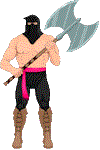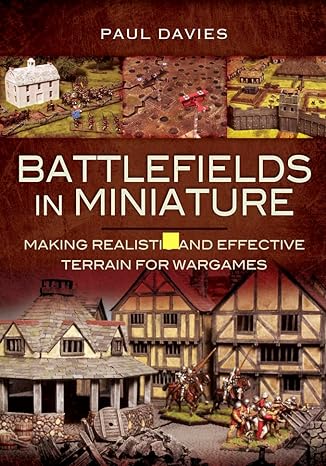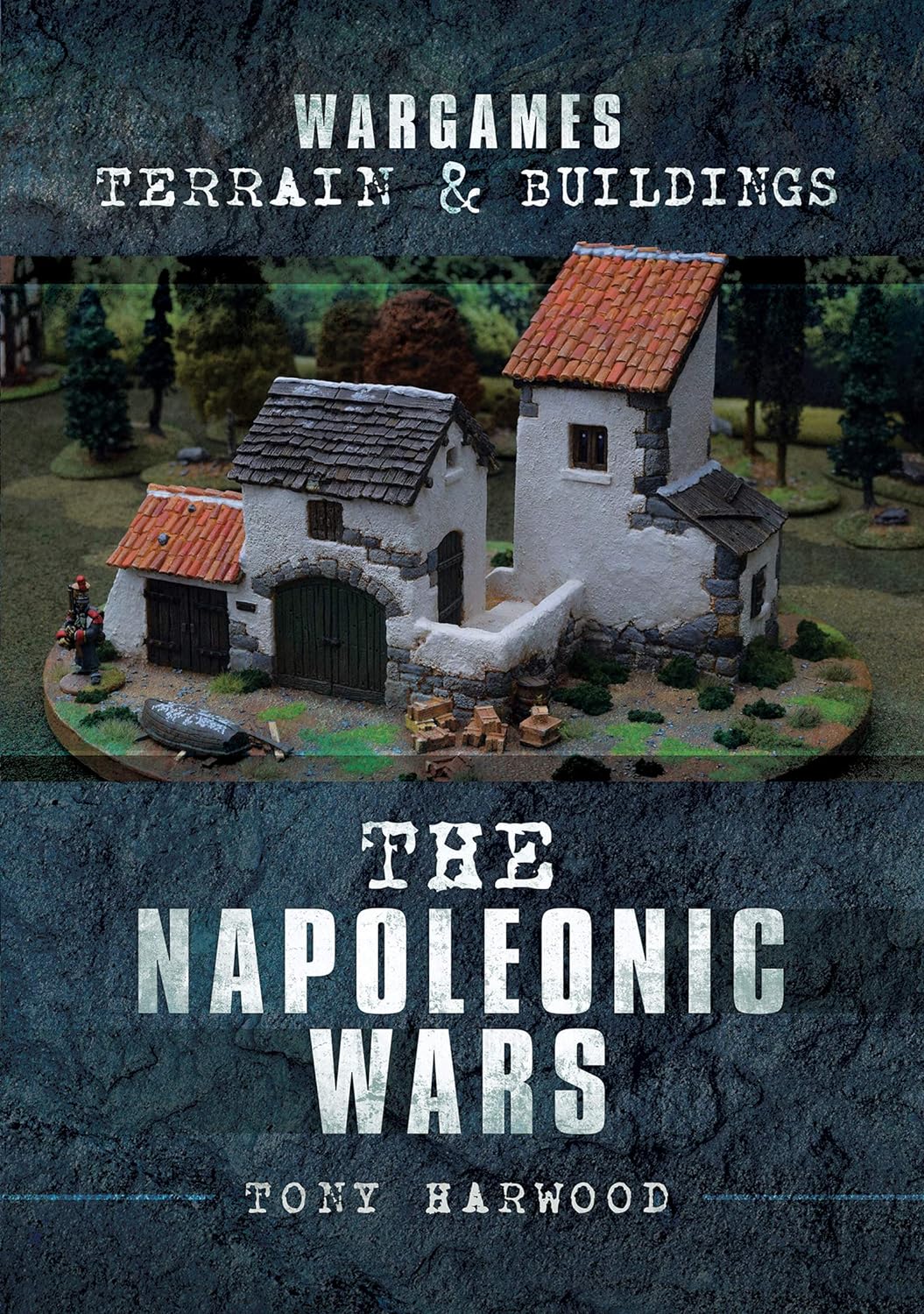Britcon 2003
This year, after realizing my Lithuanians had started to get so familiar even my opponents were getting sick of seeing them turn out, I had decided to try and give some little-used lead a chance to shine. This game it was the turn of the Carthaginians - the Later ones to be precise.
I even chose a Children's Version of the list, complete with Elephants, warband and a Numidian ally - not even the proper players choice of "Wall-o-Spear" or apparently the Spanish ally(?). Even though the main objective was to deploy the army I had also played 2 practice games with it though - enough to realize that the warband command was always going to die, so I had at least not let the CinC command it - a good decision as it turns out.
Game 1 (well, game 5 actually).
|
PsS |
3 |
Bw O |
8 |
Rg Kn Cv |
1 |
|
PsO |
3 |
LhF |
5 |
BwO |
8 |
|
AxX |
12 |
Irr bd F |
5 |
Rg Kn |
5 |
|
LhF |
3 |
CvO |
4 |
LhF |
5 |
|
Kn O Gen |
1 |
Kn Gen |
1 |
|
19 |
|
|
19 |
|
23 |
This game came after 4 preview games - one with Lusignian Cypriot and one of 6mm Fire & Fury - so as you can see I was really taking things seriously. However this extreme level of preparation failed to extend to me actually remembering several of the fairly significant rules of play, and indeed of using those I did effectively.
Being a defending 4 command army with plenty of Cv, Elephants and Lh (O) playing a 3 command army unlikely to feature any of these things in spades I chose to get myself off to a great start by sending my ally off on a flank march, thus depriving myself of any options at deployment, and also reducing my opportunity to do any outflanking moves. I also then narrowed down the table further by placing 4 pieces of terrain, all of which fell at the front of my deployment zone, pinning me back like a masochistic canary firmly fastened into the middle of a dartboard.
I then proceeded to split my army, leaving the mounted command isolated and unsupported on one side of a wood and my highly mobile & flexible center to fend for itself. I also hid 5 auxilia in a wood, from whence they never appeared all game.
However this wasn't enough, and my warband command were deployed facing a block of Ax (X) - which they didn't really fancy (having not read the bit in the rules that says the Q/kill Ax (X) before the game) so I allocated all my pips to change their neat solid line into a series of uncoordinated columns which were then instead launched piecemeal against a Bw/Bd(F) block whilst 4 auxilia of my own took on the 12 auxilia X of my opponent.
Surprisingly, none of this went particularly well, and inside a couple of hours I was back in the bar with a pint in my hand and with my arse sat on the table across from me next to the ashtray where I had made some room to put it after Mr Peregrine Young had earlier quite rightly handed it to me on a plate. 0-10
Game 2
-
vs Alans
Com1
LhS
7
KnF
6
LhS
6
LhS
6
KnF
5
LhS
6
KnF
6
LhS Gen
1
LhS Gen
1
KnF Gen
1
KnF Gen
1
7
13
13
13
When swimming with the pond life you ideally want to meet a larval-stage water-boatman with hydrophobia, not a great big hairy frog with a sharp pointy stick. However both myself and Mr Phil "The Flank March Alone From My Last Army Nearly Destroyed 25mm As A Competitive Game In This Country" Jelley found ourselves both in the mindset of bugs staring at amphibians come Saturday morning.
Rather surprisingly I deployed a river as attacker, and even more surprisingly the Alans came out with some very small gentle hills. I stuck the warband command next to the river, the spears down the middle and the cavalry, supported by the Numidians on the flank. The Alans went for a rather surprising "stick all the Lh out front and keep the Kn as a reserve ready to commit" tactic (shocker!).
A combination of iffy pips by the Alans and rather confusing aggressive advances by the Carthaginians ("erm, why are those Wb (F) trying to rush us - we're Kn (F)?") restricted the knight redeployment (mountains & Mohammed...?) as the Alans instead concentrated on separating their Lh into smaller groups and scattering them in front of the lines.
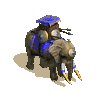 This
ultimately was to prove their undoing as it allowed first the Ps (O) from the
spear command, and then the elephants and Ps (S) from the warband command to
catch a good fistful of LH... and kill them all !
This
ultimately was to prove their undoing as it allowed first the Ps (O) from the
spear command, and then the elephants and Ps (S) from the warband command to
catch a good fistful of LH... and kill them all !
On the left a Mexican standoff had developed with the Alan Lh line not quite brave enough (well, as 13EE for the command what do you expect?) to come off a hill and fight my Numidians and mounted command. Then the Alan knights suddenly decided to find out what all the fuss was about - bursting through their own Lh - just as across the table similar things were happening, as knights charged spears and knights charged elephants and warband (and Ps (S) actually). But, even in the ensuing crapshoot the Alans command sizes - and losses to date - and opponents who were generally on better factors than them - all counted, and it was 10-0 to the Carthos!
Game 3 vs More Ch'in
|
Sp O |
10 |
BdF |
6 |
KnO |
6 |
|
PsO |
10 |
BwO |
12 |
CvO |
4 |
|
LhF |
1 |
LhF |
3 |
CvO Gen |
1 |
|
HdO |
3 |
CvO Gen |
1 |
LhF |
3 |
|
CvO Gen |
1 |
|
22 |
HdO |
15 |
|
BtsO |
2 |
|
21.5 |
||
|
AxX |
2 |
||||
|
|
20.5 |
Great matchup. I got the warband into the spears, who were in a single rank (although supported) and my spears into the front of impetuous Bf (F) who were attempting to save some bowmen. My two mounted commands were falling back coherently in front of the chariot command, leaving the elephant as a deadly breakwater, and even managed to shift a couple of spears to help.
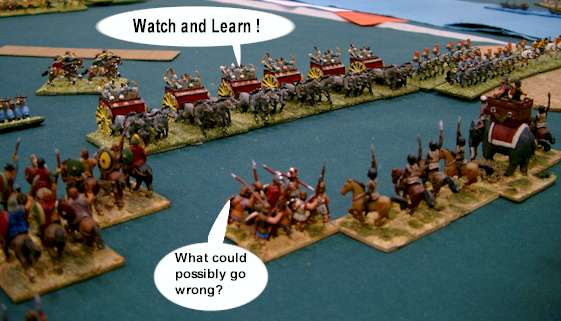
But I lost, quickly, and 0-10. Again.
The Ancient Army List Index
The Rise of Rome (280 BC to 25 BC) Mid Republican Roman ; Late Republican Roman ; Gallic ; Pyrrhic ; Later Carthaginian ; Ancient Spanish ; Later Macedonian ; Later Seleucid ; Later Ptolemaic ; Attalid Pergamene ; Numidian or early Moorish ; Pontic ; Early Armenian ; Parthian ; Later Jewish ; Illyrian ; Spartacus Slave Revolt ; Bosporan ;
Storm of Arrows - Western Europe in the Later Middle Ages (1300 AD to 1500 AD) Medieval French ; 100-yrs War English (Continental) ; 100-yrs War English (Britain) ; Later Medieval Scots ( Britain) ; Later Medieval Scots (Continental) ; Later Scots Isles & Highlands ; Medieval Welsh ; Later Anglo-Irish ; Medieval Irish ; Low Countries ; Later Medieval German ; Italian Condotta ; Swiss ; Free Company ; Medieval Burgundian ; Medieval Danish ; Medieval Swedish ; Medieval Castilian ; Medieval Crown of Aragon ; Medieval Portugese ; Later Granadine ; Navarrese ; Ordonnance French ; Wars of the Roses English ; Ordonnance Burgundian ; Santa Hermandad Nueva Castilian
Immortal Fire - The Greek, Persian & Macedonian Wars (550 BC - 146 BC)
Classical Greek ;
Early Achaemenid Persian ;
Lydian ;
Thracian ;
Syracusan ;
Early Carthaginian ;
Skythian or Saka ;
Kyrenean Greek ;
Late Dynastic Egyptian ;
Alexandrian Macedonian ;
Later Achaemenid Persian ;
Classical Indian ;
Early Successor ;
Early Sarmatian ;
Galatian ;
Hellenistic Greek ;
Graeco-Bactrian ;
Graeco-Indian ;
Indo-Greek :
Legions Triumphant - Imperial Rome (25 BC to 493 AD) Dominate Roman ; Principate Roman ; Foederate Roman ; Later Sarmatian ; Early German ; Dacian or Carpi ; Ancient British ; Caledonian ; Early Alan ; Jewish Revolt ; Sassanid Persian ; Kushan or Indo-Skythian ; Palmyran ; Early Frankish, Alamanni, Burgundi, Limigantes, Rugian, Suevi or Turcilingi ; Western Hunnic ; Early Visigothic & Early Vandal ; Early Ostrogothic, Herul, Sciri or Taifali ; Early Anglo-Saxon, Bavarian, Frisian, Old Saxon or Thuringian ; Gepid or Early Lombard ; Early Scots Irish ; Early Pictish ; Hephthalite Hunnic ;
Swords & Scimitars - The Crusades (1096 AD to 1311 AD) Early Crusader ; Later Crusader ; Fatimid Egyptian ; Georgian ; Seljuk Turk ; Cuman ; Komnenan Byzantine ; Post Latin Conquest Byzantine ; Ilkhanid Mongol ; Mamluk Egyptian ; Cilician Armenian ; Syrian States ; Khwarazmian ; Ayyubid Egyptian ; Middle Serbian ; Middle Bulgarian ; Medieval Cypriot ; Latin Greece ; Pecheneg ;
Eternal Empire - Eastern Europe and the Rise of the Ottomans (1300 AD to 1500 AD) Early Ottoman Turkish ; Later Ottoman Turkish ; Tatar ; Later Russian ; Later Serbian Empire ; Later Bulgarian ; Later Lithuanian ; Later Polish ; Later Teutonic Knights ; Catalan Company ; Middle Hungarian ; Moldavian or Wallachian ; Albanian ; Timurid, White Sheep Turcoman or Black Sheep Turcoman ; Later Hungarian ; Hussite ;
Decline & Fall - Byzantium and Islam (493 AD to 1071 AD) Early Byzantine; Maurikian Byzantine ; Thematic Byzantine ; Nikephorian Byzantine ; Later Moorish ; Later Visigothic ; African Vandal ; Italian Ostrogothic ; Early South Slav ; Lombard ; Avar ; Arab Conquest ; Early Bulgar ; Ummayad Arab ; Abbasid Arab ; Early North African Dynasties ; Khurasanian Dynasties ; Bedouin Dynasties ; Dailami Dynasties ; Pecheneg ; Ghaznavid ; Western Turkish (includes Khazar);
Wolves From The Sea - The Hairy European Dark Ages Post Roman British ; Early Welsh ; Later Scots Irish ; Merovingian Frankish ; Later Pictish ; Early Slavic ; Middle Anglo Saxon ; Astur Leonese ; Andalusian ; Early Navarrese ; Carolingian Frankish ; Viking ; Magyar ; Great Moravian ; Early Scots ; Rus ; Norse Irish ; Early Medieval French ; Early Medieval German ; Norman ; Early Polish ; Anglo Danish ;
Swifter Than Eagles - The Biblical Book Nubian ; Early Libyan ; Later Sumerian or Akkadian ; Early Nomad Allies ; Old or Middle Kingdom Egyptian ; Hyksos ; Mitanni ; Syro-Canaanite ; New Kingdom Egyptian ; Later Minoan or Early Mycenaean ; Hittite Empire ; ; Middle or Early Neo-Assyrian ; Later Mycenaean or Trojan ; Sea Peoples ; Philistine ; Phoenician Allies ; Neo-Hittite And Aramaean ; Later Hebrew ; Mannaean Allies ; Libyan Egyptian ; Urartian ; Median ; Neo-Elamite ; Proto-Arab Allies ; Cimmerian or Early Skythian ; Neo-Assyrian Empire ; Phrygian Allies ; Kushite Egyptian ; Neo-Babylonian Empire ;
Oaf of Fealty - Early Medieval Europe Feudal Catalan and Early Crown Of Aragon ; Early Hungarian ; Taifa Andalusian ; Feudal Navarrese and Aragonese ; Feudal Castilian Leonese or Portuguese ; Fanatic Berber ; Italo-Norman ; Feudal French ; Imperial German ; Feudal German ; Communal Italian ; Papal Italian ; Early Scots Isles And Highlands ; Feudal Scots ; Early Russian ; Feudal Polish ; Anglo-Norman ; Later Welsh ; Early Lithuanian or Samogitian ; Wendish Prussian or Estonian ; Early Medieval Frisia and Other Free Cantons ; Post-Viking Scandinavian ; Early Plantagenet English ; Later Sicilian ; Early Medieval Irish ; Early Anglo-Irish ; Early Teutonic Knights ; Mongol Invasion ; Early Granadine ; Middle Plantagenet English ;
Empires of The Dragon - China, Korea and Japan Erlitou-Shang Chinese ; Early Northern Barbarian Allies ; Early Zhou Chinese ; Yayoi Japanese ; Early Horse Nomad ; Ko Choson Korean ; Warring States To Western Han Chinese ; Qiang And Di ; Three Kingdoms Korean ; Eastern Han Chinese? ; Three Kingdoms W Jin And S Dynasties Chinese ; Kofun Nara Japanese ; Northern Dynasties Chinese ; Later Hindu North Indian ; Later Hindu South Indian ; Central Asian City States ; Western Wei To Early Tang Chinese ; ; Later Horse Nomad ; Tibetan ; Nepalese Allies ; Parhae Korean ; Late Tang To Five Dynasties Chinese ; Khmer Or Champa ; Thai Allies ; Nanzhao ; Pyu Burmese Allies ; Koryo Korean ; Early Heian Japanese ; Pagan Burmese ; Liao ; Song Chinese ; Xi Xia ; Ghurid Afghan ; Jin ; Late Heian To Muromachi Japanese ; Japanese Warrior Monk Allies ; Mongol Conquest ; Moslem Indian Sultanates ; Medieval Indonesian Or Malay ; Yuan Chinese ; Medieval Burmese ; Ming Chinese ; Yi Korean
Blood and Gold - The Americas Olmec ; Teotihuacan ; West Mexican ; Zapotec or Mixtec ; Toltec ; Chinantec ; Aztec ; Tarascan ; Tlaxcalan Confederacy ; Mayan ; Mochica ; Chanca ; Chimu ; Hatun-Colla ; Canari ; Inca ; Mapuche or Araucanian ; Amazonian Forest Tribes ; Tupi ; Chichimec ; Pueblo Culture ; Mound-Builder Culture ; South-Eastern Woodland Culture ; Timucuan ; Eastern Woodland Culture ; Plains Culture ; Pacific North-West Culture
